Interview: Dr. Dylan Hayden, D.P.A. ’21
Content to Come
From Meet-Cute To Engagement Shoot
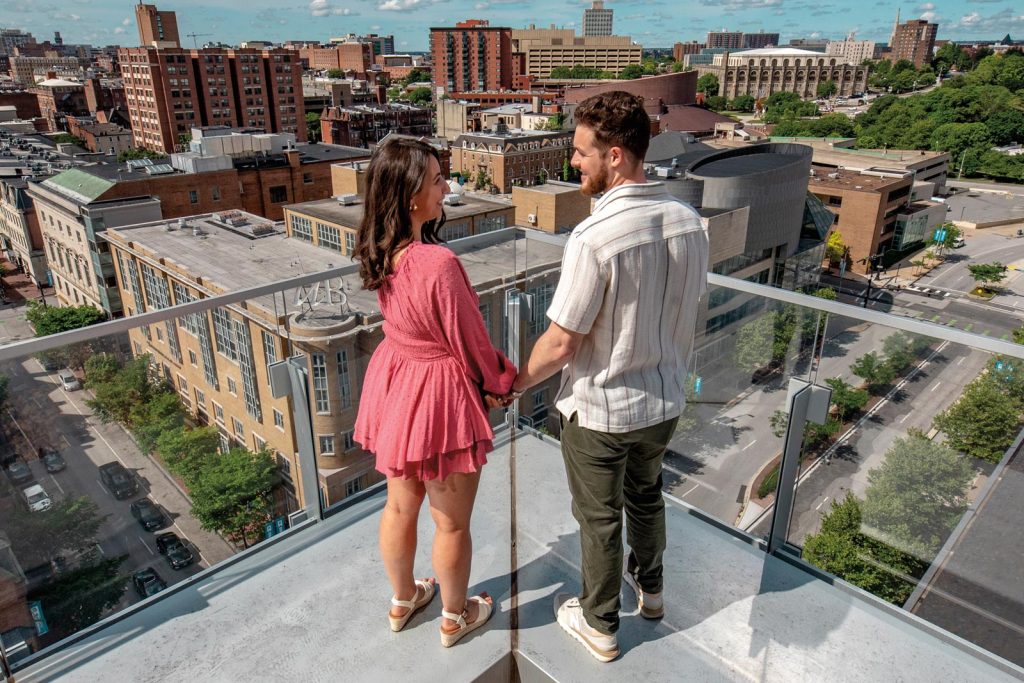
Sabrina Flores, B.A. ’17, almost didn’t show up to the admission marketing photoshoot that was scheduled at the same time as one of her evening classes during her senior year in the Interdisciplinary Studies program at The University of Baltimore.
“After mulling it over, I decided it would be fun and worth skipping class, so I told my professor that I’d have to leave early,” said Flores.
Public policy major Noah Johnston, B.A. ’19, had already sat for multiple sessions on April 5, 2017, by the time he headed to the rooftop of the John and Frances Angelos Law Center for the last shoot of the day.
With Honors
Three UBalt alums named to 2024 cohort with other influential leaders
BY JOCELYN T. SLAUGHTER
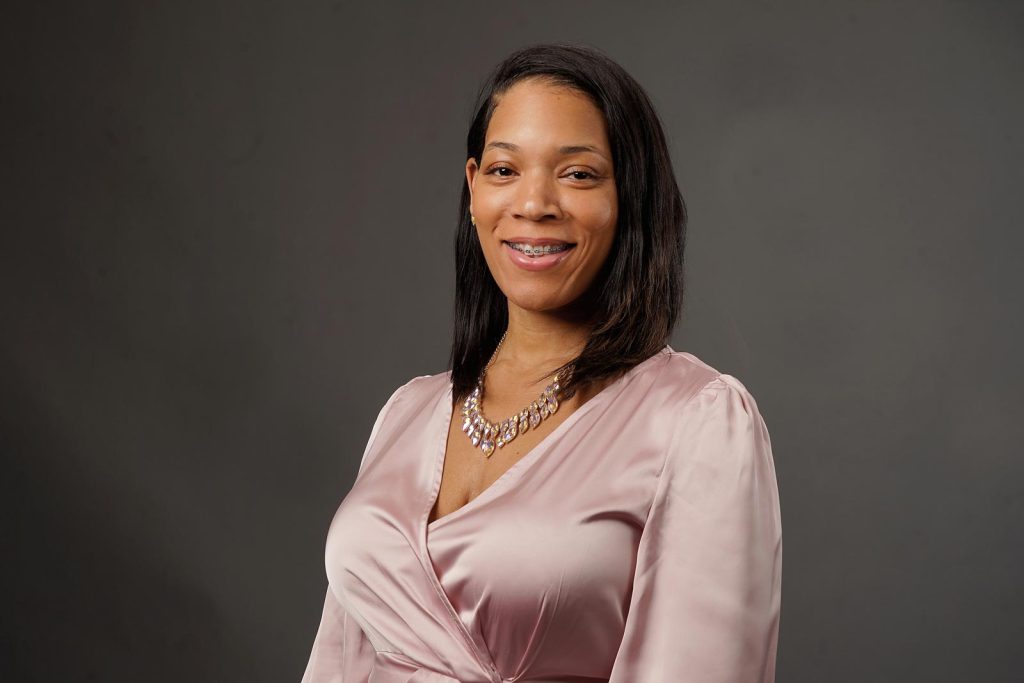
Dr. Martin Luther King Jr. famously stated, “Life’s most persistent and urgent question is, ‘What are you doing for others?’’’ Nonprofit leaders lean into this question with their purposeful work in their communities by seeking to provide transformative societal change even while they metamorphosize as individuals.
Three University of Baltimore alumni—Tonaeya Moore M.P.A. ’20; Loren Nelson, B.A. ’21, M.S. ’24; and Derrick Whiting, B.A. ’23 were recently recognized by The Baltimore Banner for having answered Dr. King’s question. Each was honored as one of the local news outlet’s 2024 Emerging Leaders during a ceremony in May.
Tackling Chronic Absenteeism One Layer at a Time
BY MADDIE WELLS
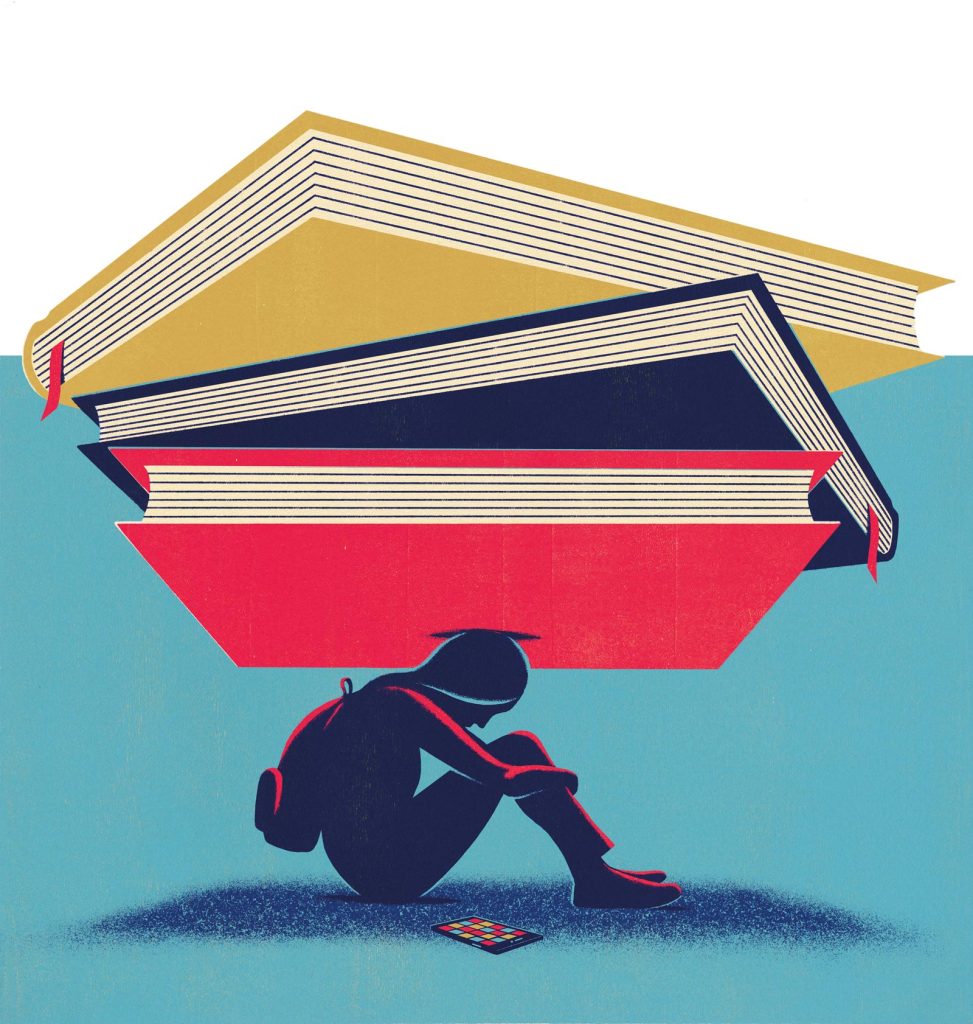
In 2005, University of Baltimore School of Law Professor Barbara A. Babb and Senior Fellow Gloria H. Danziger saw the need for a different approach to chronic absenteeism among Baltimore City Public School students. Forgoing traditional punitive methods to treat students’ absences, they created what is now called the Tackling Chronic Absenteeism Project (TCAP)—formerly the Truancy Court Program, or TCP—to understand and treat underlying issues, foster long term academic success and strengthen ties between schools and the community.
As the TCAP team likes to say, addressing chronic absenteeism is like “peeling an onion.” A student’s low attendance rate is often just the first layer—a sign that children and their families are struggling with problems like bullying, an undiagnosed learning impairment, food insecurity, illness or substance use in the family, the loss of a parent or caregiver, housing instability or neighborhood violence.
From Classrooms to Communities
A collaborative approach to service learning at UBalt
BY JESSICA SILLERS (NEÉ JONAS), MFA ’13
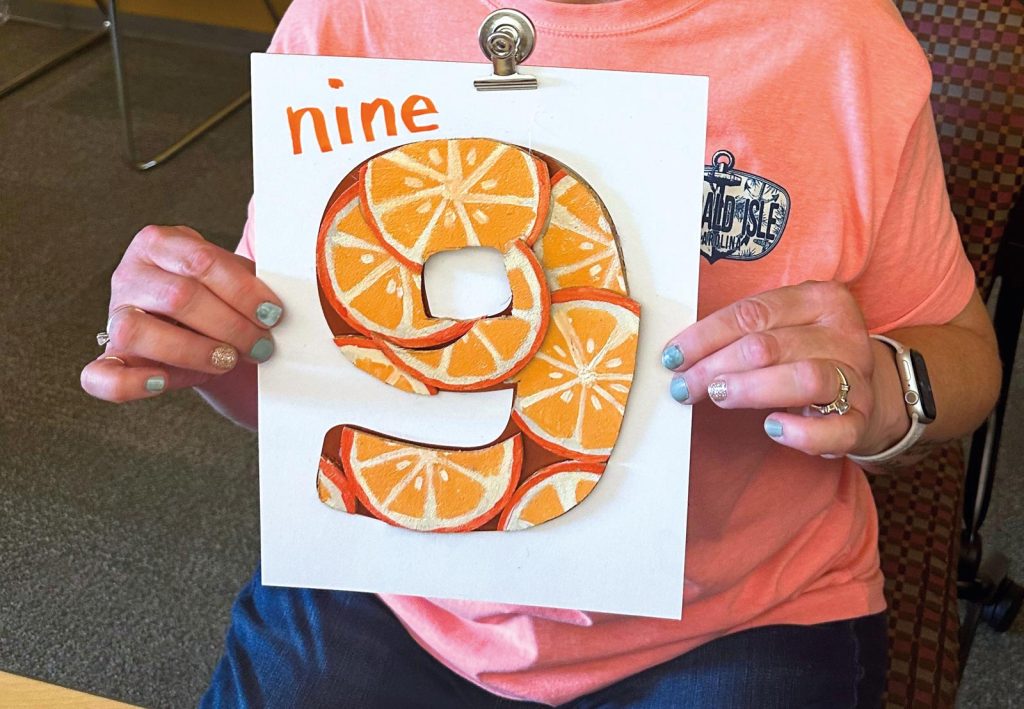 This spring, a new Service Learning Fellowship launched, allowing faculty and students to make an even bigger impact outside the classroom. Funded by the University System of Maryland, the program provides faculty with stipends to deepen community engagement through their coursework.
This spring, a new Service Learning Fellowship launched, allowing faculty and students to make an even bigger impact outside the classroom. Funded by the University System of Maryland, the program provides faculty with stipends to deepen community engagement through their coursework.
The fellowship’s inaugural semester featured four classes across multiple disciplines, in which students logged at least 15 hours of service work with a community partner through collaborative projects. They also completed “significant and structured reflection” that tied their classroom learning to their service experience.
Safety First
Addressing the ever-changing nature of drug threats to communities
BY ANNA RUSSELL

In 2016, the chief of staff of the Washington/Baltimore High Intensity Drug Trafficking Area (HIDTA) program, Jeff Beeson, presented Roger Hartley, dean of The University of Baltimore’s College of Public Affairs, with a partnership idea that would benefit both institutions.
The regional HIDTA—established 30 years ago under the White House’s National Drug Control Policy—was searching for a new fiduciary body to provide oversight of its grant process. The program provides funding and resources to federal, state, local and tribal law enforcement agencies, along with drug treatment and prevention programs, to reduce drug trafficking and
production.
“When I approached Dean Hartley and explained that our job was to manage these federal grants and projects aimed at improving community safety, he also immediately saw the value in a collaboration,” said Beeson.
Embracing the New Age of AI
At UBalt, we believe that AI is not a threat, but an opportunity. Under the direction of the Center for Excellence in Learning, Teaching, and Technology (CELTT), the University is ensuring that the technology complements education rather than overshadowing it.
BY POORNIMA APTE
ILLUSTRATIONS BY MARIO WAGNER
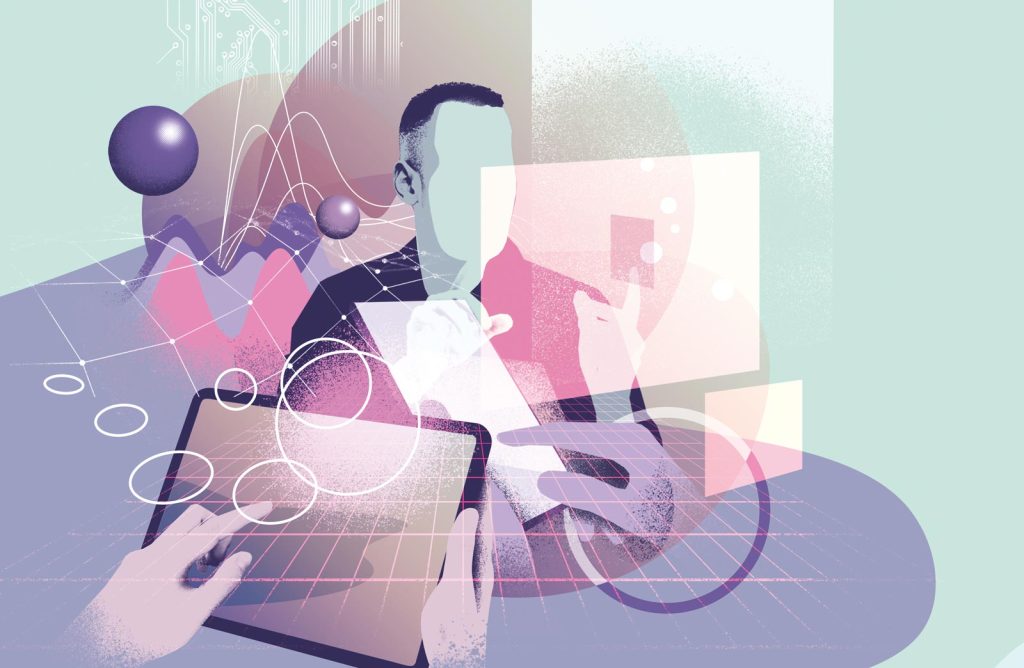
For a long time, higher education has moved at a predictable pace with educators adopting new technology tools gradually. The advent of artificial intelligence (AI) feels much more disruptive, especially because its pace of evolution is so rapid.
Since news of the impressive capabilities of generative AI—ChatGPT is its most familiar variation—broke in November 2022, the technology has been making systematic inroads in higher education. A 2024 Turnitin survey of college students in the fall 2023 term found that more than half used generative AI in some manner.
The post-AI landscape is entirely new—and unprecedented. With respect to AI, “what I would offer is that The University of Baltimore, as other universities, is in the midst of what might be similar to the Cambrian explosion in prehistory, when you had so many life forms in such a small time and such accelerated evolution—when you’re in the middle of something that dynamic, it’s unclear where you are relative to others,” said Dr. Alan Lyles, Henry A. Rosenberg Professor of Government, Business and Nonprofit Partnerships at the College of Public Affairs.
The Future is Now
BY ANNA RUSSELL
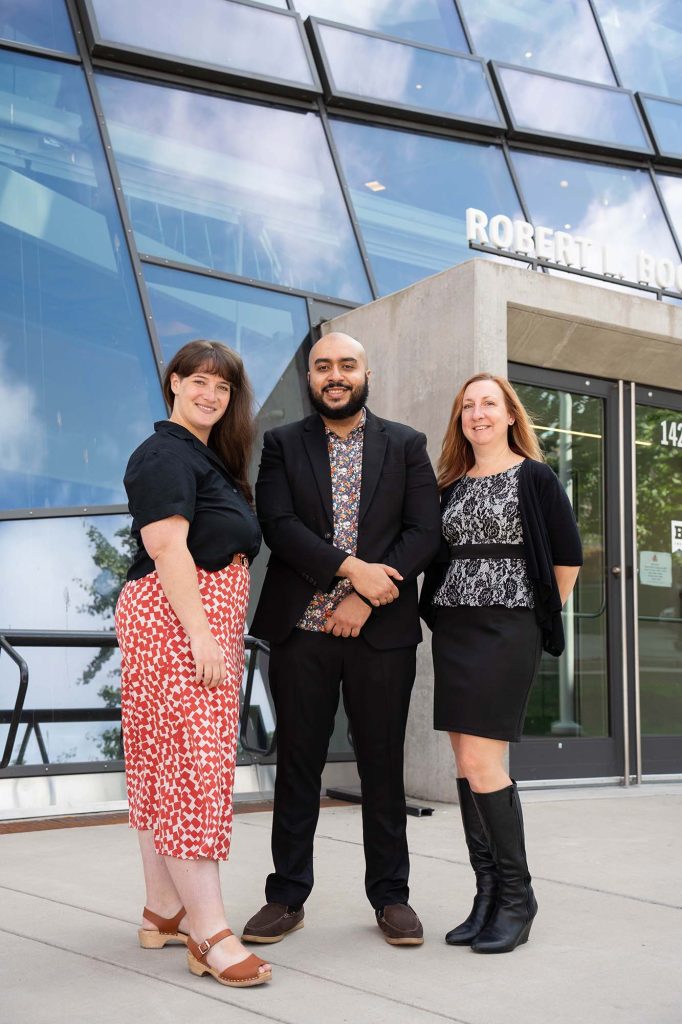
The University of Baltimore’s commitment to “Knowledge That Works” isn’t just defined by the hands-on training students receive through experiential learning; scholarship is also a vital component. UBalt’s distinct approach to career-focused education provides students with the skills to meet the immediate needs of today’s workforce while cultivating the critical knowledge necessary to evolve and meet future demands.
But in today’s technology landscape, this morning’s “future demands” can easily become required skills by the afternoon. This has an increasing number of faculty and administrators embracing UBalt’s proactive stance on AI, designing policies and pedagogy specific to their areas of study and collaborating on more holistic guidelines for their larger units.
The Merrick School of Business even launched a new STEM-designated Master of Science in AI for Business program in the fall semester to meet the growing demand for managers who can not only use AI technology but articulate its usefulness and understand its limitations.
Securing the Future With CyberSecurity
UBalt graduates show that there’s more than one way to craft a cybersecurity career
BY KATIE COTTINGHAM
ILLUSTRATION BY MICHAEL GLENWOOD
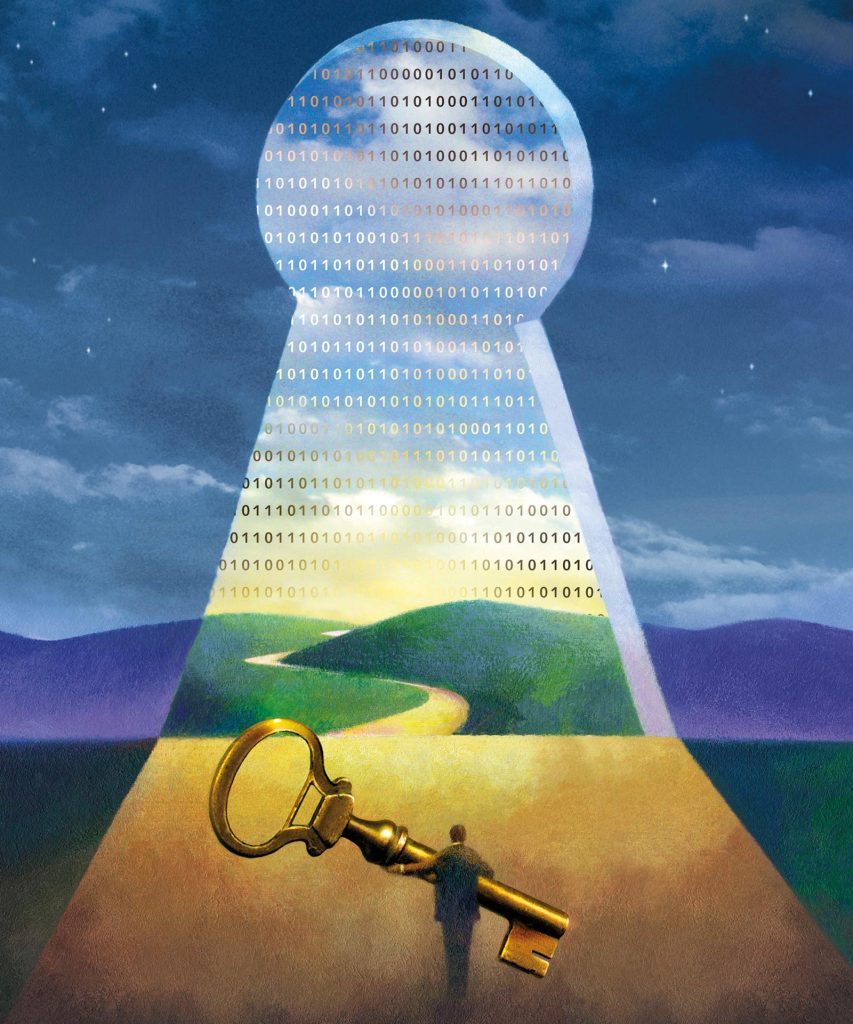
Almost everything about us is online. Social media posts display our personal thoughts and photos. We move money online between bank accounts and from credit cards to retailers. Even our medical records are digital, accessible through web-based portals and apps.
These conveniences make our lives easier, but they also make it easier for criminals to take over many aspects of our lives. “Bank robbers don’t have to show up at a bank now to steal your money,” said David Doggette, MBA ’03, president and CEO of 2HB Incorporated who is also a principal system engineer in a cybersecurity role at the company. “Your identity can be stolen, and there’s so much opportunity for theft.”
